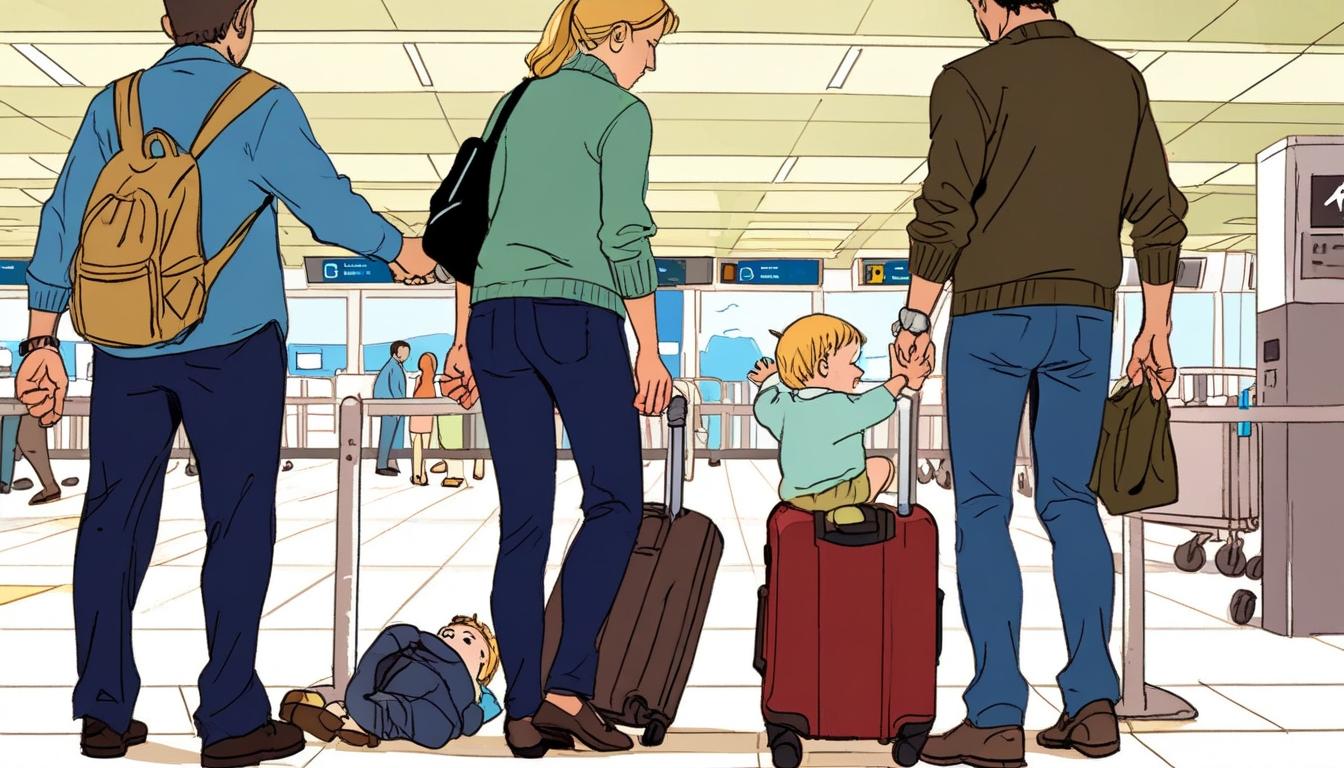Expat families often find themselves negotiating a maze of travel regulations and airline policies when embarking on long international journeys. This was the case for Jonathan Arthur and his wife Xun Sun, who were recently banned from boarding a British Airways flight from Shanghai to London due to concerns over insect bites on their infant son, Joseph.
As they approached the boarding gate for their flight to attend a family wedding, the couple noticed what they believed were harmless insect bites on their one-year-old son’s leg. Seeking precautionary measures, they inquired at the check-in desk about purchasing allergy medication. However, their efforts to ensure their son’s comfort swiftly escalated into a distressing scenario. According to the family, a British Airways staff member consulted a medical hotline, which resulted in the decision that they could not board the flight. The airline expressed concerns that the rash surrounding the bites could be indicative of a severe allergic reaction to Joseph’s known peanut allergy, despite the fact that the family had received advice from airport medical personnel to apply ointment and wait for the swelling to subside.
Jonathan recounted the family's alarming experience, saying, “We were treated like we had done something wrong. It was nothing more than swollen bites.” The airport staff advised them to obtain a “fit to fly” letter from a doctor—an unusual requirement given the minor nature of the issue. As the couple was escorted away from the boarding gate, they felt humiliated and sidelined, left waiting at the airport for several hours until they were finally able to secure alternative flights with another airline that did not require such medical documentation.
The couple’s experience raises questions about airport health protocols and how airline staff interpret medical advice from remote specialists. Jonathan expressed disbelief at how an airline employee, without medical qualifications, could make such a consequential decision based solely on a consultation conducted over the phone. "When you pay for a service you expect to be treated like a customer, not like a hindrance," he lamented.
British Airways responded to the incident by emphasising their commitment to passenger safety. A spokesperson stated, “We take the safety and well-being of our customers very seriously and do everything we can to support them when issues like this arise. This includes accessing specialist medical advice to assess an individual's suitability to travel, which is what happened in this case.” The airline maintained that while they understood the customer's disappointment, they could not compromise on safety standards.
This incident is not isolated; previously, British Airways faced scrutiny for other customer service missteps. In one notable case, Richard and Kate Sugden were barred from boarding a flight due to confusion concerning passport validity under new post-Brexit rules. The airline later admitted the error and refunded their holiday costs along with compensation. Such occurrences highlight a growing trend of passengers navigating complex and often confusing airline regulations, leaving many families grappling with unexpected travel disruptions.
In a different context, British Airways also found itself at the centre of a public relations challenge when a Canadian family reported bedbug bites suffered during a flight. They expressed their concerns to the cabin crew, who were unable to find them alternative seating. Although the airline acknowledged the situation and confirmed that reports of bedbugs were rare, the emotional impact and discomfort experienced by the affected families catalyse further discussions about health protocols and customer service practices in the airline industry.
As families like the Arthurs navigate the intricacies of international travel, the importance of clear communication and comprehensive health protocols remains paramount. Not only do these experiences impact immediate travel plans, but they also influence broader perceptions of airline accountability and customer care in an industry where safety and service are of utmost importance.
The complexities of travel regulations can deter families from flying, raising concerns about how bureaucracy can overshadow the essence of travel—bringing loved ones together. Rather than merely adhering to policies, airlines may need to consider the human element of each situation to avoid causing distress to their customers in such vulnerable circumstances.
Reference Map
- Paragraphs 1, 2, 3, 4, 5, 6
- Paragraphs 6, 7
- Paragraphs 8, 9
- Paragraphs 8, 9
- Paragraphs 8, 9
- Paragraphs 8, 9
- Paragraphs 8, 9
Source: Noah Wire Services
